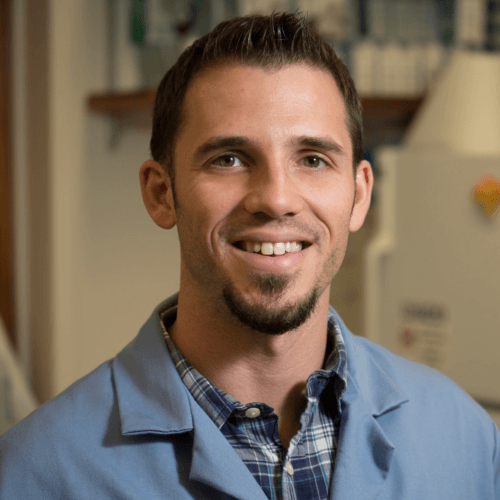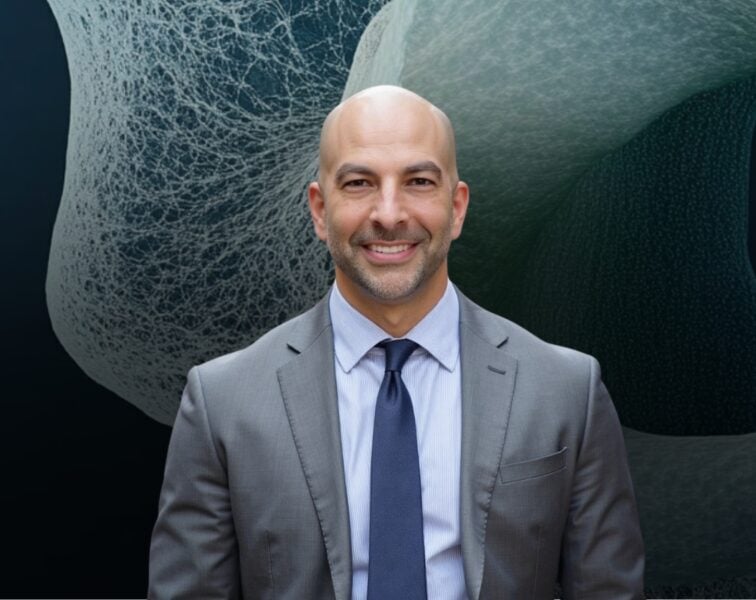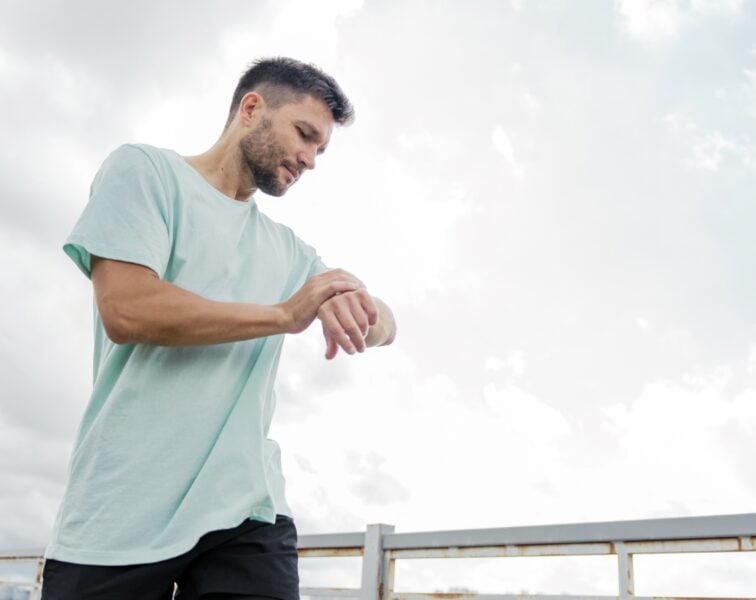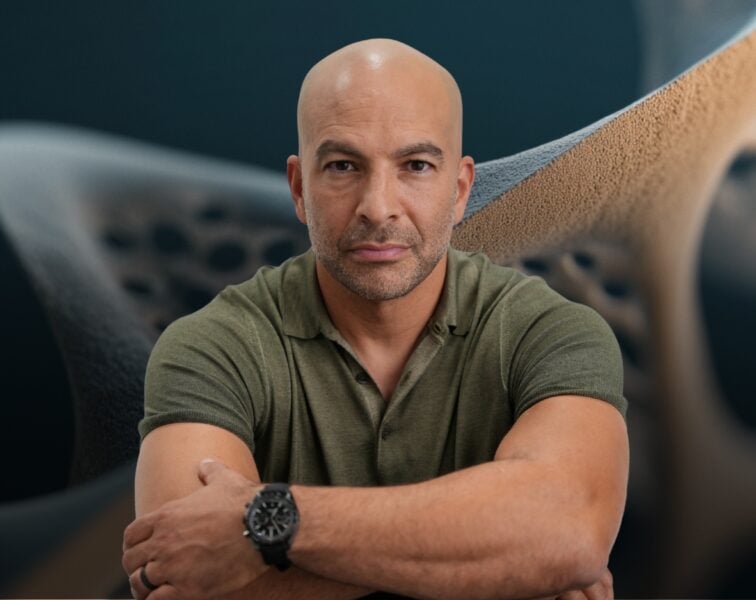Andy Galpin is a Professor of Kinesiology at California State University at Fullerton, where he studies muscle adaptation and applies his research to work with professional athletes. In this episode, Andy sets the foundation for the conversation by discussing the anatomy, microanatomy, and physiology of the muscle, including explaining what it actually means to undergo hypertrophy of the muscle. He then explains the difference between power, strength, speed, and hypertrophy and how those differences relate to what’s happening at the cellular level and the functional unit level. Additionally, he discusses energy sources for muscles, the importance of protein for muscle synthesis, the various types of muscle fibers, and the factors that determine one’s makeup of muscle fibers. Finally, Andy wraps the conversation with how he would design a program for an untrained person committed to adding muscle and functional strength for longevity.
Subscribe on: APPLE PODCASTS | RSS | GOOGLE | OVERCAST | STITCHER
We discuss:
- Andy’s path to expertise in exercise [3:30];
- Contrasting strength, power, and force production and how they inform us about training for longevity [9:30];
- Muscle energetics: Fuels that provide energy to muscles, and the importance of protein [17:45];
- The structure and microanatomy of muscle, muscle fibers, and more [29:30];
- Energy demands of skeletal muscle compared to other tissues in the body [39:45];
- How a muscle contraction works and why it requires ATP [48:00];
- Muscle fibers: modulation between fiber types with movement and changes in fibers with training and aging [53:15];
- Andy’s study of twins demonstrating the difference in muscle fibers between a trained and untrained individual [1:02:30];
- Microanatomy of fast-twitch and slow-twitch muscle fibers [1:11:15];
- Factors that determine one’s makeup of muscle fibers, and how adaptable they are with training [1:22:15];
- Explaining hypertrophy and what happens at the cellular level when a muscle grows [1:30:00];
- How athletes quickly cut water weight and the rehydration process [1:37:30];
- Comparing different types of athletes [1:47:30];
- Training advice for a hypothetical client who’s untrained and wants to add muscle and functional strength for longevity [1:49:45];
- Changes in muscle and muscular function that occur with aging [1:53:45] ;
- Training plan for the hypothetical client [1:59:30];
- What drives muscle hypertrophy? [2:12:15];
- How to properly incorporate isometric exercises into a workout [2:19:00];
- Additional training tips: movement patterns, how to finish a workout, and more [2:25:45];
- Ways to incorporate high heart rate exercise into a workout plan [2:28:45]; and
- More
Get Peter’s expertise in your inbox 100% free.
Sign up to receive An Introductory Guide to Longevity by Peter Attia, weekly longevity-focused articles, and new podcast announcements.
Andy’s path to expertise in exercise [3:30]
- Peter has wanted to speak with Andy for quite some time and listeners to this podcast know how much of an emphasis he places on exercise
- Peter has said it many times before, “There’s really no more potent tool to improve longevity (meaning extending the length of life and improving the quality of life) than exercise. And that includes nutrition, and that includes sleep, and that includes the entire pharmacopeia of medication, supplements, drugs, hormones, etc.”
Peter divides exercise into different pillars
- 1) Strength
- 2) Stability
- 3) & 4) Cardiorespiratory fitness (further subdivided by the metabolic state and energy state)
- Zone 2
- Zone 5
- Today we’re going to focus on strength and things that stem from that (like hypertrophy) which are of huge interest to people
Andy’s background in exercise
- Andy begins by stating a conflict of interest, “I’m an exercise scientist… I actually assign strength training”
- He is biased to giving more credit to exercise for longevity and wellness
- Andy grew up in a very small town in southwest Washington
College
- He played everything in high school‒ football, basketball, baseball, track and field
- He went to a small school in Oregon where he played college football and got his undergraduate degree in exercise science
- After that he worked in Arizona training professional athletes
- He went back and got his Master’s degree in human movement sciences, which is just another fancy way of saying kinesiology or exercise science
- Then he got his PhD in human bioenergetics
In 2011 he came out to California and has been working at Cal State Fullerton ever since
- For a while now, he’s been the director for the Center for Sport Performance there
- He also runs a Biochemistry and Molecular Exercise Physiology lab at Cal State Fullerton
In terms of sports, Andy played college football and then training professional athletes
- He started competing in weightlifting (which colloquially is Olympic weightlifting) and then combat sports a while after that
- He has continued to work with athletes in just about every sport while running his lab (doing research) over the last 10 years
- His research and interests come back to the same point‒ the details for training and recovery are important for performance
- He was a decent athlete and felt like he was in the perfect spot because he wasn’t so good that these details didn’t matter
- The details of effective training and recovery mattered
- This was the difference between him being a starter and not
- He was good enough to know where he got rewarded
- If you’re not good enough, then it doesn’t matter what you do because you’re not going to play at the next level
- He was totally obsessed with giving himself every advantage
- He wanted to go All Pro (but that didn’t happen)
- He knew he was never going to be a professional level caliber or even Division I, but he wanted to play college football
- This is where his passion came from
- He grew up in a small town, a very working class place where losing was always fine
- There was always someone better than you
- But losing because you didn’t prepare was totally unacceptable
- Most of the kids he grew up with worked before school (on farms or cleaning stalls)
- His parents worked in construction
- The whole idea of fending for yourself and getting what you earn was something he grew up with
- He moved into sports and academia with the expectation that, “If you want a chance, it’s on you and nobody else. And so do the work or don’t do the work.”
- This pushed him to get where he is
After his own athletic career…
- He worked with athletes who wanted to pursue tremendous goals like go to the Olympics
- He also found that some sports (like women’s wrestling) have no funds; no one is going to help them
- Andy became very interested in these people because he saw that he could help them a lot, and no one else cares about them
- This is what motivated him to get his Master’s and PhD
- He wanted to learn more and find all the all the answers he can
Contrasting strength, power, and force production and how they inform us about training for longevity [9:30]
How does Olympic lifting contrast with powerlifting?
- Layne Norton has been on the podcast several times [see the Selected Links section at the end]; he’s a very successful powerlifter
- In powerlifting, you get three lifts and it’s all about your total in those three lifts
{end of show notes preview}
Would you like access to extensive show notes and references for this podcast (and more)?
Check out this post to see an example of what the substantial show notes look like. Become a member today to get access.

Andy Galpin, Ph.D.
Andy Galpin earned his undergraduate degree in Exercise Science at Linfield College where he played football and won a DIII National Championship. He earned his Master’s degree in Human Movement Sciences from the University of Memphis and his Ph.D. in Human Bioenergetics from Ball State University. Andy is a Professor of Kinesiology at California State University, Fullerton where he is also the Director for the Center for Sport Performance. He is an active member of the National Strength and Conditioning Association & American College of Sports Medicine. He serves on the advisory board of many private and non-profit companies in the area of human performance. He is the author of the best-selling book Unplugged and routinely speaks at conferences, clinics, and podcasts around the globe. Andy also works as a high performance coach and consultant to numerous professional athletes (MMA, Boxing, Wrestling, BJJ, MLB, NFL, etc.). [CSU Fullerton]
Website: andygalpin.com
Instagram: drandygalpin
Twitter: @DrAndyGalpin



